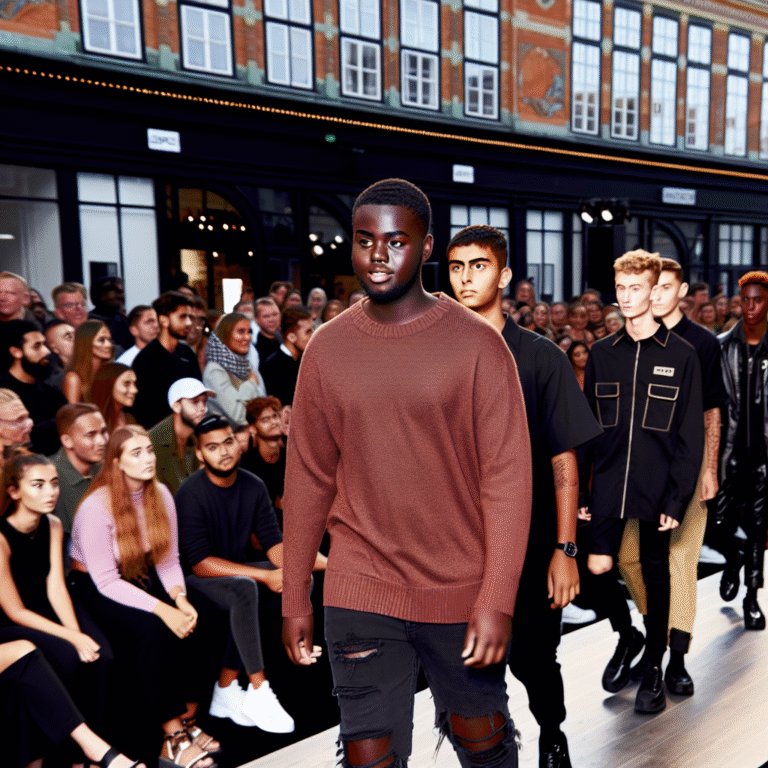KNI Navigates Challenges While Embracing Opportunities with Meqqusaalik
KNI finds itself at a crossroads, grappling with a series of formidable challenges. The population in smaller settlements is dwindling, the company has experienced a sharp decline in duty-free sales in Kangerlussuaq, and the financial health of its lamb slaughterhouse, Neqi, in Narsaq is precarious.
Yet, amidst these trials, there are glimmers of hope. One standout success has been KNI’s outdoor brand, Meqqusaalik, which has flourished both in storefronts and through online sales.
First launched nearly a decade ago, Meqqusaalik, meaning “the one who wears down,” embodies not just rugged outdoor apparel, but also a connection to Greenlandic heritage—paying homage to a local spirit that guides and protects those who brave the elements.
“Our outdoor brand is Greenland’s first and only choice for outdoor and workwear,” says KNI’s marketing manager, Anders Stenbakken. “We fuse ancestral techniques with modern materials like Primaloft, merino wool, and waterproof textiles. Our signature item? The Anorak.”
In an exciting expansion, KNI is now set to launch online sales of Meqqusaalik products in Denmark via the Meqqusaalik.gl portal. This move coincides with a growing trend toward outdoor activities where people are seeking practical, durable gear.
Stenbakken adds, “We aspire to strengthen the cultural ties between Greenland and Denmark. Traditionally, we’ve exported seafood and sealskin products to Denmark, but this initiative allows us to send something new—clothing infused with our culture.”
This launch is the result of years of dedication to the brand. After KNI began selling Meqqusaalik products in Greenland, they saw overwhelming consumer enthusiasm. “Just recently, we processed 62 orders in Greenland alone—our apparel is gaining traction all over the country,” Stenbakken remarked enthusiastically.
The inception of Meqqusaalik dates back to 2016, inspired by requests from local fishermen and trappers in Uummannaq for work clothing suited to Greenland’s unique conditions. “We started with an anorak, which was rigorously tested by local trappers and fishermen against the harsh elements,” Stenbakken explains. Their feedback led to a rapid evolution of the product, which continues to thrive today.
While the anorak remains the flagship offering, the range has expanded significantly. “We’ve developed a full suite of outdoor clothing that not only withstands daily use but is rooted in our rich clothing traditions,” notes Stenbakken.
In recent years, KNI has ramped up its marketing efforts, telling the story of Meqqusaalik and its namesake spirit—enhancing brand awareness to better compete in a crowded online market. “As we grow, we also embrace a responsibility to bolster Greenlandic culture,” he asserts.
Interestingly, the design process isn’t grounded in a single designer’s vision. Collaborations take place at KNI’s headquarters in Sisimiut before production models are finalized with a Swedish company. The garments are manufactured in Asia, ensuring that both quality and cultural integrity are maintained.
Beyond outdoor wear, KNI also markets a variety of products featuring Greenlandic designs—everything from bedding to Christmas items. “As a company owned by the Greenlandic people, we’re committed to celebrating and preserving our culture,” Stenbakken emphasizes.
In summary, while KNI navigates significant challenges, its successful foray into the outdoor clothing market with Meqqusaalik paves the way for a brighter future—one that champions both economic resilience and cultural pride.
